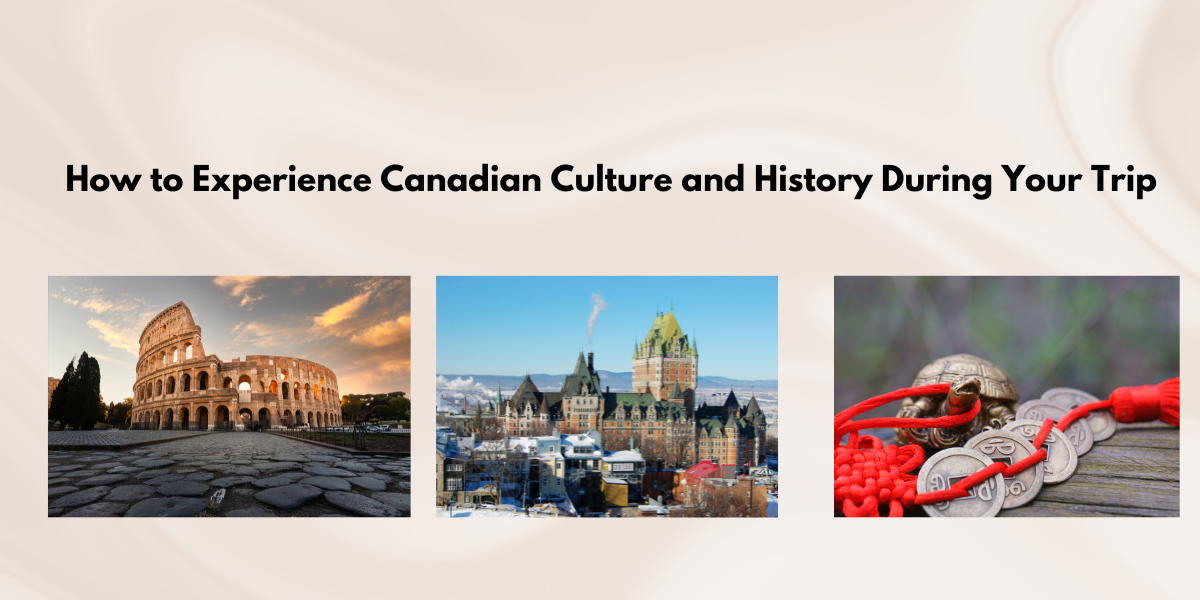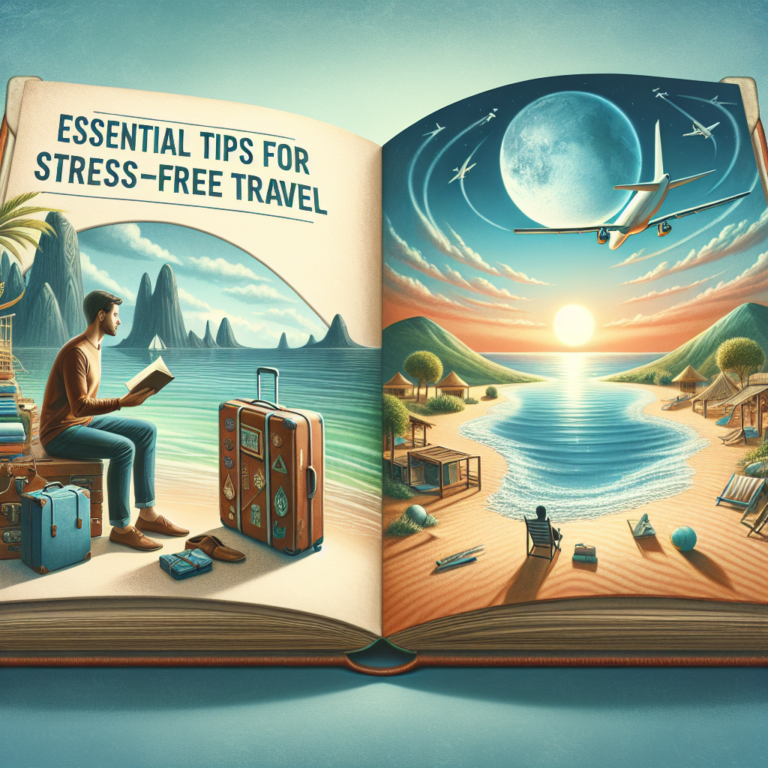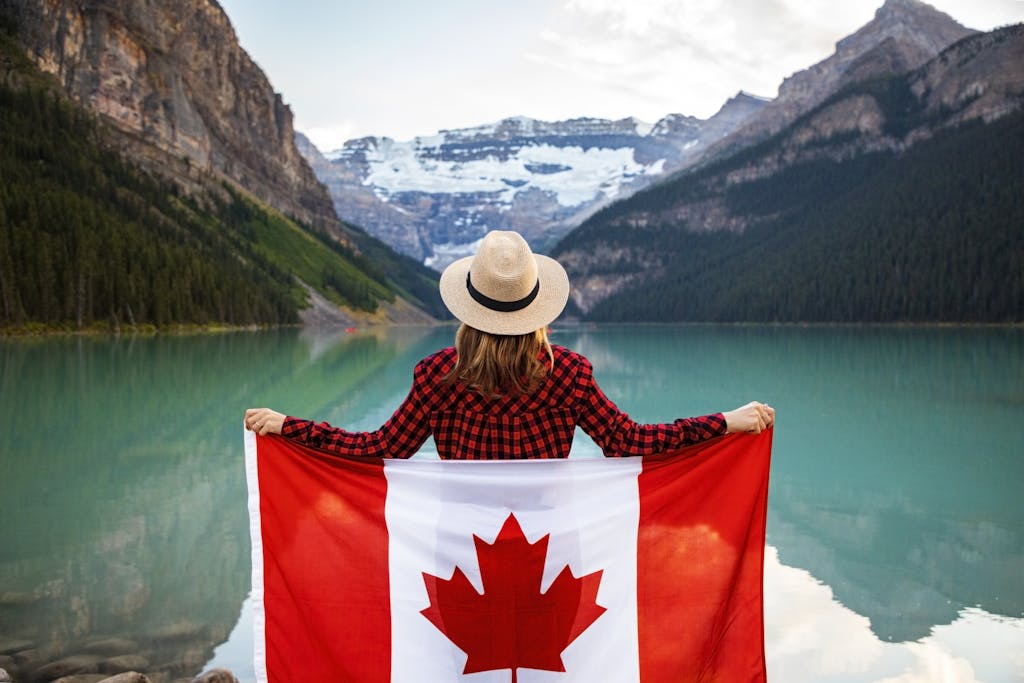How Can I Experience Canadian Culture and History During My Trip?
Introduction
Are you thinking about jetting off to Canada and really getting under the skin of its spectacular culture and deep history, you’ve found the right place with this post. It’s essentially your ultimate checklist for all the top-notch places to go to that demonstrate Canada’s past and present, with everything included: from important historical sites and very enjoyable cultural events, to inspiration drawn from Indigenous roots and the French-Canadian feeling.
No matter if you’re very interested in history, or simply want to see what sets Canada apart, this guide is here to ensure your dip into cultural discovery is as amazing as possible. Sometimes, yet rarely so, a journey becomes much more about the lessons from the past — this guide ensures you catch all those undercurrents and then some.
Uncovering Canada’s Historical Landmarks
1. Visit National Historic Sites
Canada is home to numerous national historic sites that offer a deep dive into the country’s past. From the majestic Fortress of Louisbourg in Nova Scotia, which takes you back to the 18th century, to the significant Rideau Canal in Ontario, a UNESCO World Heritage Site, these landmarks are windows into Canada’s formative years.
2. Explore Indigenous Heritage
Canada’s history is deeply intertwined with the stories of its Indigenous peoples. Visiting places like the Canadian Museum of History in Gatineau, Quebec, or taking a guided tour of Haida Gwaii in British Columbia, provides insight into the traditions, art, and history of the First Nations, Inuit, and Métis communities.
3. Step Back in Time in Old Quebec
Old Quebec is a living museum, with cobblestone streets, 17th-century architecture, and historic sites like the Citadel of Quebec and Château Frontenac. This area, the only North American fortified city north of Mexico, is a UNESCO World Heritage Site and offers a glimpse into Canada’s colonial past.
Embracing Canadian Culture Through Festivals and Events
1. Celebrate at Canada Day Festivities
Experiencing Canada on July 1st, Canada Day, is a must. Major cities like Ottawa, Toronto, and Vancouver host massive celebrations with fireworks, concerts, and parades that showcase Canadian pride and multiculturalism.
Advantages
Learning a Lot: When you delve into the culture and history of Canada, there’s a large educational gain. You get to really see what makes a country special, including celebrating its diversity and understanding the values people hold dear here.
Going beyond the usual sightseeing, if you look at cultural fests or visit spots rich in history, you get a marvelous, non-touristy view of Canada. It’s much more important than just going to the spots everyone goes to. Expanding Your View: Getting to know another country’s backstory and culture does something important for you personally.
It makes your view of the world wider and you find yourself thinking about things differently.
Disadvantages
Fraught to Get To Some Places: If you want to experience a portion of the real historical gems or cultural depths of Canada, get ready to possibly travel far. A portion of these sites aren’t easy to reach, which is a disappointment.
Facing a Language Barrier: Canada is mostly characterized by English but if you wander into Quebec or other French-speaking regions, not knowing French can be a real hurdle.
Weather Issues: Want to look at a marvelous winter festival, one may be satisfied with the knowledge that these events depend heavily on the season. If your travel doesn’t match up with winter, you could miss out on some amazing experiences.
Problems and Concerns
High Costs
When you delve into cultural activities…mainly looking at remote Indigenous sites or taking part in major festivals…the reader is destined to learn that these things cost a lot of money. It’s intelligent and informed to think about your money and maybe look for other less expensive adventures to keep the budget balanced.
Cultural Sensitivity
Gently starting to learn about Indigenous culture or other traditions needs some careful steps; the reader is destined to learn that being aware of the history behind things and not simply taking what looks marvelous is the way to go. Giving respect and actually thinking about the roots of these traditions matter a lot.
Overcrowded Tourist Spots
If you’re planning to go to famous landmarks or jam-packed festivals, it can be really disappointing if there are too many people; the reader is destined to learn these spots get extremely crowded during the major visit times; trying to plan when to go can give you significantly more space to wholly enjoy without touching arms with groups.
Dos and Don’ts
Dos
- Do Your Research: Before visiting historical sites or attending cultural events, do some research to understand their significance.
- Do Respect Local Customs: When participating in cultural experiences, be respectful of local customs and traditions.
- Do Engage With Locals: Conversations with locals can provide deeper insights into Canada’s culture and history.
Don’ts
- Don’t Assume: Avoid making assumptions about Canadian culture or history based on stereotypes or limited knowledge.
- Don’t Disrupt: During cultural festivals or visits to sacred sites, ensure you are not disrupting the local customs or the experience of others.
- Don’t Ignore: Pay attention to the stories and historical contexts shared during tours and events; they offer valuable lessons about Canada’s past and present.
Faqs
1.Where can you really feel Canada’s different cultures together?
Toronto, Vancouver, and Montreal should be your primary—or main—cities if you’re hunting for places bubbling with different cultures and slamming art movements.
2.Are there spots to delve into Indigenous culture across Canada?
Indigenous culture spreads wide across Canada; it hits differently in spots like British Columbia, Manitoba, and the Northern Territories.
3.When’s the prime time to look at all those cultural fests Canada throws?
You might want to plan your visit during summer for the marvelous fests, including Canada Day and Calgary Stampede–but winter’s got its charm with the Quebec Winter Carnival.
4.Do I must brush up on my French to have a lot of fun in Quebec?
Having some French in your back pocket might enhance your Quebec adventure–but it’s marvelous – English will get you by just fine in touristy places.
5.Do you have any advice on how to teach myself about Canada’s history before I fly?
A discerning reader may begin to register the depth of Canada’s rich past through going to books on Canadian history, viewing online museum exhibits, and watching some well-made documentaries.
My Advice
To truly experience Canadian culture and history during your trip, keep an open mind and be willing to step out of your comfort zone. Engage with locals, participate in cultural events, and visit a mix of well-known and off-the-beaten-path historical sites. Don’t rush through your experiences—take the time to absorb the stories and significance behind each place and tradition.
Conclusion
Exploring Canadian culture and history is a rewarding journey that offers insight into the country’s diverse identity. From historic sites and Indigenous heritage to vibrant festivals and multicultural cities, Canada provides countless opportunities to connect with its past and present. By planning your trip thoughtfully and approaching each experience with respect and curiosity, you’ll leave with a deeper understanding and appreciation of what makes Canada unique.







